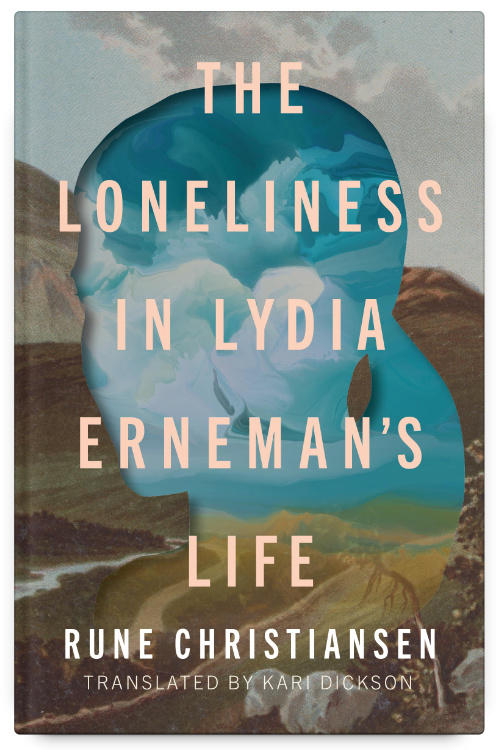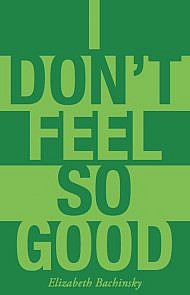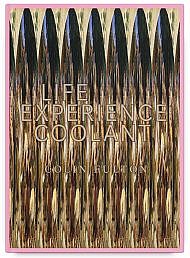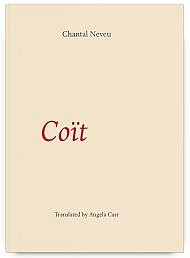Having grown up as an only child in Northern Sweden, Lydia is used to isolation and being on her own. She fills her days with her love of animals, nature, and hard work. She eventually settles into a career as a vet in rural Norway and embraces the rhythms of country life. In a series of poetic sketches, Lydia tends to the animals in her community, spends time with her aging parents, and falls in love. Despite an increasing need for closer human contact that begins to encroach on her contented solitude, ultimately it is Lydia’s satisfaction with her inner life that speaks of an elegance and hope often lost in these clamouring times.
Winner of the Brage Prize, the most prestigious award in Norwegian Literature, The Loneliness in Lydia Erneman’s Life is a quiet, beautiful exploration of solitude and how we relate to other beings. It has been lauded by European critics for doing something very rare: offering deep pleasure and joy in reading with little theatrics. Written in concise prose, the gravity and tranquility of this novel make it a gift—a soothing, contemplative offering about the depths of our inner worlds.
Praise for The Loneliness in Lydia Erneman’s Life:
“How do you go about making literature of the unobtrusive life? Rune Christiansen offers up a patient and quietly inexorable example in The Loneliness in Lydia Erneman’s Life. In Christiansen’s story of a young woman coming to grips with the most universal, most commonplace trials of our existence, nothing is irrelevant, nothing is silent. A lovely, enriching, compelling work of art.” —Michael Crummey, author of The Innocents
“The Loneliness in Lydia Erneman’s Life is a brilliant portrait narrated with tenderness, acuity, and expertise. Like the best portraits, it doesn’t reveal its subtexts immediately. Rather, it beguiles us and shows the colouring of a consciousness and how this palette shifts with the surrounding phenomena and pressures—the influence of strangers, seasons, pain, health, habits, dinners—this ongoing flux of renewal, attachment, and demise.” —Moez Surani, author of The Legend of Baraffo
Press Coverage
“The Loneliness in Lydia Erneman’s Life is gentle and sombre and beautiful. At once lyrical and acute, each short chapter offers a glimpse into the protagonist’s quiet life, almost like a meditation. Perhaps this is how the author intended this book to be read? A sip at a time, chapter by chapter, letting each portion slowly warm you from the inside out.” —Prairie Flower Reads
Quoted: The Epigraph in The Loneliness in Lydia Erneman’s Life —All Lit Up
“Christiansen’s story ultimately transcends language, culture, and countries by raising questions about community, human connection and what is it to live a worthy, good life.” —Becca Lawlor, Carousel Magazine
An Excerpt from The Loneliness in Lydia Erneman’s Life —Open Book
Books to Add to Your Summer Reading List —NUVO Magazine
Best Books of 2023: Fiction—The Miramichi Reader
“Christiansen uses the lonely spaces in Lydia’s life to give readers insight into the moments that most people take for granted. Each sentence is beautifully written and read with ease. The work flows like a gentle river, and often strikes nostalgic or melancholic tones throughout.” —Ashley Haynes, The Ampersand Review
International Press Coverage
“Reading The Loneliness in Lydia Erneman’s Life leaves the reader with a strong feeling of pleasure. This is obviously due to Christiansen’s exquisite writing, a distinct style which the author has already proved is among the best we have.” —Morgenbladet
“Rune Christiansen has written one of his best novels… This is an enchanting book on loneliness and love, where practically every sentence can be savoured.” —Klassekampen
“The Loneliness in Lydia Erneman’s Life is a luminous example of a book which quietly lifts the reader, an artful, but unpretentious book, written with an almost page-turner ease.”
—Aftenposten
“An unusually beautiful novel. Few Norwegian writers write more beautiful sentences than Rune Christiansen. Of course, good literature is about more than beautiful sentences, but there can be no doubt that Christiansen writes exquisite literature.” —NRK P2
“An outstanding, beautiful, wonderfully vivid and addictive novel.” —Berlingske Tidende
“Christiansen has written a gorgeous novel about being alone.” —Politiken
“It doesn’t often happen that I finish a book, pick it up almost immediately and start reading again with the same intensity and increasing expectation as the first time. It is intriguing what sets Christiansen’s precise, poetic language in motion. His elegant sentences have power and drive you forward in the reading. Light in tone, soft and delicate, they awaken your vigilance to what lies almost imperceptibly beneath the great details of everyday life. This is a book to cherish for a long time.” —Mappalibri
“Rune Christiansen has written a novel of rare beauty.” —De Standaard der Letteren
“This is a book of rare beauty…a beautiful, riveting and moving novel that should be read in undisturbed silence. The Loneliness in Lydia Erneman’s Life can put the reader in a double state of joy. Firstly, through the feeling of pleasure that an outstanding literary style can give. The prose is simple, agile, lucid, vigorous, and full of metaphors… Secondly, through the feeling of well-being and comfort of the book’s content, in its description of Lydia’s own meaningful life while it is being lived.” —Stavanger Aftenblad
Rune Christiansen is a Norwegian poet and novelist. One of Norway’s most important literary writers, he is the author of more than 20 books of fiction, poetry, and nonfiction. He has won many prestigious awards, including the 2014 Brage Prize for his bestselling novel, The Loneliness in Lydia Erneman’s Life. Fanny and the Mystery in the Grieving Forest was shortlisted for the same prize and published in English by Book*hug Press in 2019. He is also a professor of creative writing. Christiansen lives just outside of Oslo, Norway.
Kari Dickson is a literary translator. She translates from Norwegian, and her work includes literary fiction, children’s books, theatre, and nonfiction. In 2019, Book*hug Press published her translation of Rune Christiansen’s Fanny and the Mystery in the Grieving Forest, and, in 2021, her co-translation of Mona Høvring’s Because Venus Crossed an Alpine Violet on the Day that I Was Born. She is also an occasional tutor in Norwegian language, literature and translation at the University of Edinburgh, and has worked with the British Centre for Literary Translation (BCLT) and the National Centre for Writing. Dickson lives in Edinburgh, Scotland.






